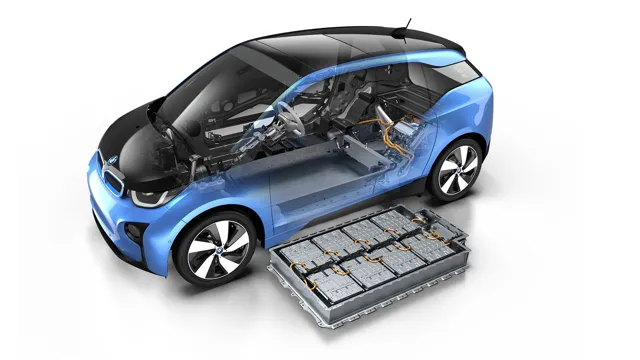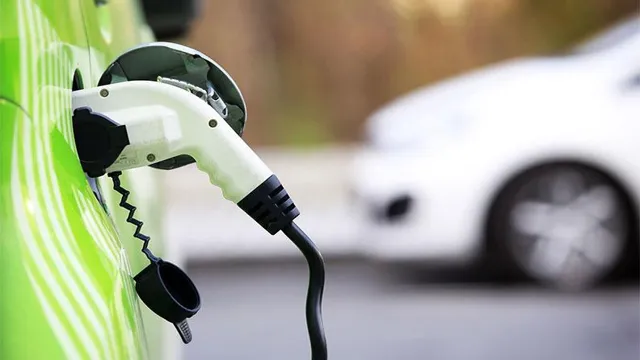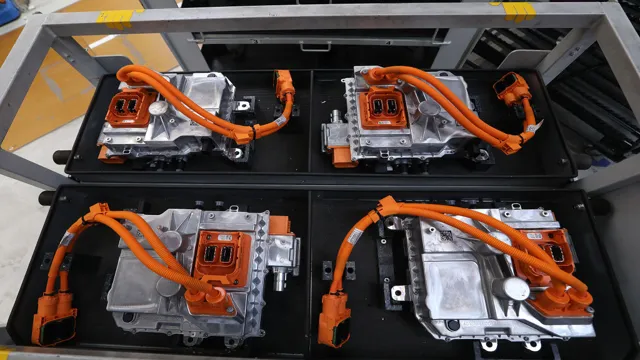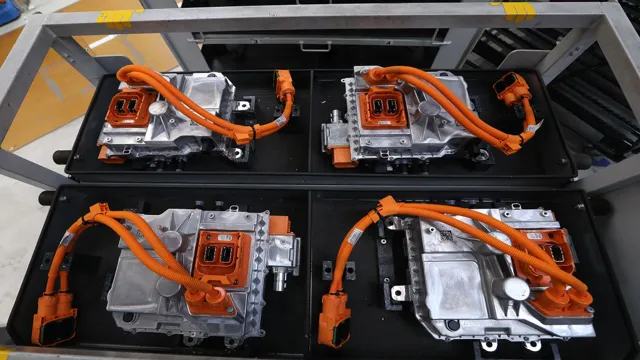Electric Car Batteries: When and Why You May Need to Replace Them
Is it time to replace the battery in your electric car, or can you keep driving with the current one? This is a question that many electric car owners face at some point in their ownership journey. While electric vehicle technology has come a long way, batteries still degrade over time. When your battery’s range is no longer sufficient for your daily needs, it’s time to consider replacing it.
But before you rush to the dealership, there are a few things you should know. In this blog post, we’ll explore the pros and cons of replacing your electric car battery and offer some tips on how to determine the best course of action. Whether you drive a Tesla, Nissan Leaf or another electric car model, this guide will help you make an informed decision about your battery replacement options.
So, let’s get started!
Importance of Battery Performance
Are you wondering whether or not you need to replace batteries in electric cars? The answer is yes, eventually you will need to replace the batteries. Battery performance is crucial for the overall performance of an electric car. After several years of use, the battery capacity can decrease, resulting in the car’s limited range.
This can be a major inconvenience for drivers who rely on their electric car for daily use. However, the good news is that battery technology is constantly improving, and newer electric cars are being designed to last longer and require less frequent battery replacements. So, it’s important to keep an eye on your electric car’s battery performance and replace it when necessary to ensure optimal driving experience.
Longevity of electric car batteries
The longevity of electric car batteries is essential to the overall performance of electric vehicles (EVs). EVs rely entirely on their batteries for power, which is why it’s vital to ensure that these batteries last long enough to keep the vehicle moving. In addition, battery performance determines the driving range, so a good battery that can hold its charge for longer is crucial.
Moreover, it’s imperative to consider the environmental and economic impact of lithium-ion batteries, which are the most common type used in EVs. Although the longevity of electric car batteries is often a concern among consumers, studies have shown that lithium-ion batteries can last up to 300,000 miles before requiring replacement. This means that EV owners can expect to use and enjoy their vehicles for an extended period while also contributing to a greener planet.

Factors that impact battery lifespan
Battery performance is crucial to the smooth operation of any device. One of the vital factors that impact battery lifespan is temperature. High temperatures can shorten battery life, causing internal damage to the battery’s chemical composition.
Additionally, it is essential to consider usage patterns when aiming to extend battery life. Frequent charging and discharging can decrease battery lifespan, resulting in lower battery capacity and an overall shorter battery life. The type of usage, such as video streaming or gaming, can also impact battery life.
These heavy usage patterns require more power, putting a strain on the battery and causing it to drain faster. Conserving battery life by avoiding these heavy usage patterns, closing idle apps, reducing screen brightness, and turning off background tasks can help extend battery lifespan.
When to Replace Electric Car Batteries
“Do you need to replace batteries in electric cars?” is a question that often arises among those considering purchasing an electric vehicle. While electric car batteries are designed to last a long time, they are not indestructible and will eventually need to be replaced. The lifespan of an electric car battery depends on several factors, including the type of battery, how frequently the vehicle is used, and the charging and discharging patterns.
Lithium-ion batteries, the most common type of battery used in electric cars, have a typical lifespan of about 8-10 years, or 100,000-200,000 miles. However, it’s essential to note that factors like extreme temperatures, constant fast charging, and high mileage can decrease the battery’s lifespan. Regular maintenance and monitoring of the battery’s condition are crucial to identifying when it’s time for a replacement.
In summary, while electric car batteries have a long lifespan, they will eventually need to be replaced, and it’s essential to understand the factors that can impact their longevity.
Signs of a deteriorating battery
Electric car batteries are designed to last a long time, but all batteries will eventually wear out and need to be replaced. One of the biggest signs of a deteriorating battery is a decrease in driving range. If you find that you are not able to go as far as you used to without needing to recharge, it could be a sign that your battery is wearing out.
Other signs include slower acceleration, the need for more frequent charging, and a decrease in overall performance. If you notice any of these signs, it’s time to start thinking about replacing your battery. It’s important to keep in mind that not all batteries will need to be replaced at the same time, so it’s important to pay attention to the signs that your individual battery is showing.
A new battery can be expensive, but it’s worth the investment to avoid breaking down on the side of the road. In the long run, it will also save you money on repairs and maintenance. So, if you notice any signs of a deteriorating battery, don’t wait – it’s time to start researching your options for a replacement.
Industry standards for replacement
Electric car batteries are a crucial component of an electric vehicle. One of the most common questions owners ask is regarding the industry standards for replacement. Although electric car batteries are designed to last for a long time, they don’t last forever.
The lifespan of an electric car battery depends on various factors such as usage, driving conditions, and maintenance. The industry standard for replacement depends on the battery’s capacity loss. Once a battery loses 20-30% of its original capacity, it may need a replacement.
However, some manufacturers offer battery warranties that cover capacity loss below a certain percentage. It’s essential to keep in mind that replacing an electric car battery can be a costly affair. The cost of the battery can range from several thousand to tens of thousands of dollars, depending on the make and model of your car.
Therefore, proper maintenance and care of your electric car battery are crucial to prolong its lifespan. Regular charging and avoiding extreme temperatures can go a long way in extending the battery’s life.
Cost considerations
When it comes to replacing electric car batteries, cost is one of the biggest considerations. It’s important to keep in mind that electric vehicle batteries have a limited lifespan, typically lasting between five and ten years. As the battery ages, its capacity diminishes, which means the car won’t be able to travel as far on a single charge.
When the battery needs to be replaced, the cost can vary widely depending on the make and model of the car. In some cases, the cost of replacing the battery can be as high as the value of the car itself. That’s why it’s important to take into account the cost of replacing the battery when deciding whether to purchase an electric car, as well as the long-term cost savings of not having to purchase gasoline.
It’s also worth noting that while the cost of battery replacement can be high, some electric car manufacturers offer battery replacement programs or extended warranties that can help defray the cost. Ultimately, when it comes to replacing electric car batteries, it’s important to do your research and carefully weigh the costs and benefits.
Maximizing Battery Lifespan
If you’re considering purchasing an electric car or already have one, you might be wondering if you need to regularly replace the battery. Fortunately, the answer is no. However, it’s important to note that the lifespan of an electric car battery can vary depending on factors like usage, charging habits, and climate.
To maximize the lifespan of your battery, it’s recommended to charge it before it reaches a low state of charge, avoid exposing it to extreme temperatures, and try to avoid fast charging unless absolutely necessary. Additionally, there are some simple strategies you can use while driving to conserve battery power, such as minimizing the use of air conditioning and accelerating gradually. By following these tips and taking good care of your electric car battery, you can ensure it lasts for as long as possible without the need for replacement.
Maintenance tips
If you’re looking to maximize the lifespan of your battery, there are a few things you can do. Firstly, try to avoid keeping your device plugged in and charged at 100% for extended periods of time. This can cause extra strain on the battery and reduce its overall lifespan.
Instead, aim to keep your battery between 20-80% charged and only charge it when necessary. Additionally, try to keep your device at room temperature, as extreme heat or cold can also damage the battery. It’s also a good idea to avoid using your device while it’s charging, as this can cause the battery to overheat.
By following these tips and taking care of your battery, you can prolong its lifespan and keep your device running smoothly for longer.
Efficient driving habits
Efficient driving habits play a key role in maximizing the lifespan of your electric car’s battery. One of the most important things you can do is to avoid excessive acceleration and braking. Sudden starts and stops not only waste energy, but also put unnecessary strain on the battery, reducing its lifespan over time.
To combat this, try to maintain a steady speed and anticipate stops ahead of time. Another helpful tip is to use regenerative braking whenever possible. This technology allows the car to convert kinetic energy into electrical energy while braking, recharging the battery in the process.
Additionally, it’s important to keep your car’s battery within the recommended temperature range. Extreme heat or cold can significantly impact battery performance, so parking in a shaded area or a garage can help keep the battery at an optimal temperature. By adopting these habits, you can help prolong the life of your electric car’s battery and get the most out of your driving experience.
Final Thoughts
One question that often arises among electric car owners is whether or not they need to replace the batteries in their vehicles. While it’s true that electric car batteries do have a limited lifespan, they typically last for several years before needing to be replaced. In fact, most electric car manufacturers offer warranties on their batteries for up to 8 years or 100,000 miles.
Additionally, advancements in battery technology are constantly being made, meaning that newer electric cars are likely to have more durable and longer-lasting batteries than older models. Of course, like any car, proper maintenance and care can help prolong the lifespan of an electric car’s battery. This may include things like avoiding extreme temperature changes, driving efficiently, and following manufacturer-recommended charging practices.
Overall, while the idea of having to replace an electric car’s battery may seem daunting, it’s important to remember that it’s an infrequent occurrence and that advances in technology are only making electric car batteries even more reliable and long-lasting.
Conclusion
In conclusion, the question of whether or not you need to replace the batteries in electric cars is similar to asking if you need to replace the tires on a bicycle. Yes, eventually the batteries will need to be replaced, but with proper maintenance and care, it may not be as frequent of an occurrence as one might expect. Plus, with the growing advancements in battery technology, it’s possible that future electric cars may not require battery replacements at all.
So, when it comes to replacing batteries in electric cars, it’s important to stay charged with the latest information and technology developments to make the most informed decision.
FAQs
Do electric cars require batteries?
Yes, electric cars require batteries to power their electric motors.
Do electric car batteries need to be replaced?
Yes, eventually the batteries in an electric car will need to be replaced. However, the lifespan of the batteries typically lasts for several years.
How often do electric car batteries need to be replaced?
The lifespan of electric car batteries can vary depending on the make and model, as well as how often the car is driven. Generally, electric car batteries last for several years before needing replacement.
How much does it cost to replace the batteries in an electric car?
The cost of replacing the batteries in an electric car can vary widely depending on the make and model of the car and the type of battery. Generally, the cost can range from several thousand to tens of thousands of dollars.






